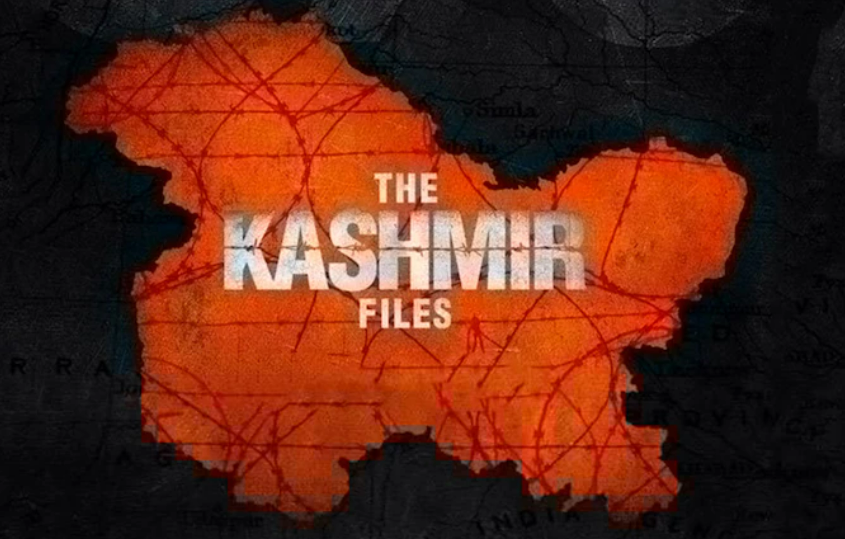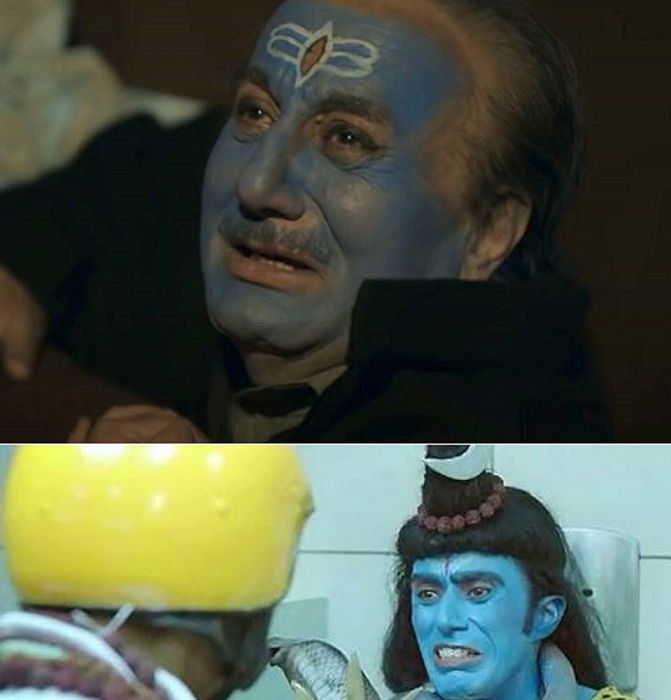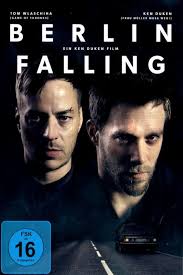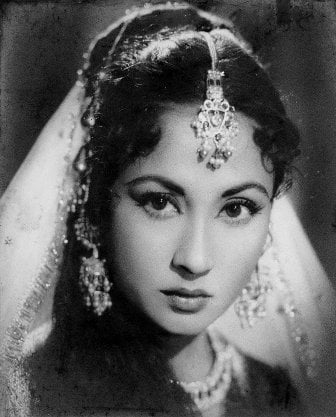



A good review of the film Extraction by a Bangladeshi. The author perceives a pro-Indian and anti-Bangladeshi bias, which I didn’t really see, but your mileage may vary. But this part is of interest to me:
Extraction carries all the elements of the racist Islamophobic mindset: Muslims cannot run the state, they have many children, their economy is a criminal shambles, their country is uninhabitable, their leaders are outlaws, there is no human dignity anywhere. The colours of this Bangladesh are as yellow as the desert. In contrast, the views of Mumbai are full of turquoise light – neat, beautiful, and luxurious. Mumbai’s mafia child is capable of love; Tyler too is mourning the death of his child. Even villainous Saju has a beautiful family. These spices create empathy towards cruel protagonists.
Extraction was not Islamophobic. In fact, extraction seems to exist in a world where religion does not exist. Too often cultural criticism “fits” art into preexistent analytic frames. Some of the elements of Extraction are perfectly aligned with well-known motifs. Chris Hemsworth is a “Mighty Whitey” par excellence. But a Western watcher of the film would have no idea that Indians are mostly Hindu and Bangladeshis are mostly Muslim, and in fact, a Western watcher would not even know that these are religious people.
If I had to make an analogy, the Bangladesh depicted in the film seems most like the 1990s gangster-dominated Russia, with the aesthetic of 1990s Mogadishu.
The fundamental problem with a lot of modern criticism and analysis is to the fallback upon common arguments and analytic structures, which add nothing familiar, and simply reinforce the familiar.
Film review from Major Aghan Humayun Amin. (Spoilers ahead)
DRONES
REVIEW ESSAY
Last night I watched a movie named “ Drone” with immense interest.
Drones have been a major part of my research since 2006 when I personally and closely saw some drone strikes while serving as a consultant in Afghanistan and Pakistan. My main client were Canadians and to be specific SNC Lavalin , at that time Canada’s largest consulting company and worlds fifth largest. The movies director is a Canadian citizen which multiplied my interest as Canada sometimes moves opposite United States and has been doing so with varied levels since loyalists fled to Canada after the rebellion of the American Colonies.
The first issue with this movie which could be very hard hitting and a block buster is that it misses the small details , which is a case of lack of common sense and sweeping judgements which were entirely avoidable.
The first image failure occurred when while claiming to depict Pakistans wild west Waziristan region the area filmed and shown was Pakistans biggest city Karachi. To deliver the most unkindest cut of all as Shakespeare would have described it , the first shot titled Waziristan shows sky scraper buildings in Karachi rather than mud houses and totally opposite images for which Waziristan is famous and known. Continue reading Film Review: Drone
Review from Major Agha Humayun Amin. I am sure some of Major Amin’s observations will invite comment 🙂

I was very keen to watch this movie and watching it was a big disappointment.
While the movie is low budget , budget by no means could have reduced it from reaching the stature of greatness if the man who made the movie was more intellectually dishonest !
The entire historic context of this movie is drastically flawed and fallacious.
The movie conveys a German military in Afghanistan that committed serious war crimes , whereas my personal observations having constructed five clinics in Kunduz in 2004-5 and having been involved in CASA 1000 survey passing through Kunduz province where German military was deployed , leads me to the irrevocable and unflinching conclusion that the German military in Kunduz was the most humane military outfit in entire NATO or non NATO forces deployed in Afghanistan.
Now this was entirely avoidable had the author carefully studied the history of German military record in Afghanistan.
As one who lived in Kabul and travelled extensively I found that Afghans loved no foreign country more dearly than Germany who they lovingly referred to as ”ALMAAN” and Turkey.
The reason was simple ! Both these states simply refused to enter areas where the public was hostile to NATO presence. While it is another issue that the German governments reasons for not doing so were based on pure and simple lack of moral courage or strategic resolution , in not annoying the large Muslim population of Germany , the result was positive, at least in terms of human rights. Continue reading Film Review: Berlin Falling
Since Vidhi’s passing remarks seem to generate so much controversy on BP; I thought I would share a statement she made to me earlier (I usually send her the links when I’m quoting her but she’s too busy to read them).
But she was pointing me towards this latest starlet:
V was saying that she could look Spanish or Italian and the first person who came to my mind was Natalie Portman. V was then comparing Tara to Madhubala or Meena Kumari who had much more “Indian looks.”

 Continue reading Is Bollywood “whitening” Indian beauty standards?
Continue reading Is Bollywood “whitening” Indian beauty standards?
I just happened to catch Shatranj Ke KhilaRi on youtube (you can see the whole movie on youtube, though I am not sure if there is a free subtitled version.. for that you may have to pay). I saw this movie in the 1980s and I remember watching it as:
Now I saw it after 35 years and it seems to me that these are exactly the worst things about the movie. It is in fact a VERY funny, beautifully directed, brilliantly acted period piece that anyone can enjoy without thinking “art movie”. But it is NOT a good depiction of how and why the British conquered India. The annexation of Oudh was just that, the annexation of Oudh. Wajid Ali Shah was a very unique personality, a gentleman and a patron of the arts, but hardly a real ruler. His deposition did not require any great chess move. The Oudh nobility had decayed long before this event and the conversion of Oudh from indirect rule (with British officers manning the Oudh army and supervising tax collection, etc) to direct EIC rule was typical of many similarly decayed nawab-doms, but NOT typical of the British conquest of India. It may be that the decaying hulk of the Mughal empire was just as depicted in that movie, but the Mughals did not rule most of India by that time. The stylized story of perfidious albion conquering the decaying Mughals was true enough of Bengal, Bihar and Oudh, but India is much more than that…The conquest of most of it was a much more serious affair, fought against harder men than Wajid Ali Shah (Haider Ali, Tipu Sultan, the Marathas, the Sikh Empire, etc). It was an unequal contest in the sense that Europeans in general were far more advanced in science, state organization and military arts, but some of the rulers who held real power in their domains (Marathas, Sikhs, Mysore, Nizam of Haiderabad, even Nepal) did make efforts to modernize their military and many of them did put up a fight. They did not lose because they were composing music, organizing kathak dance or playing chess, they lost because they were disunited, and the British proved better than them at most things that matter in statecraft. To take this movie as a metaphor for that struggle or as a good depiction of it is a disservice to history. This may be a good enough description of the annexation of Oudh, but every reviewer on Rotten Tomatoes seems to take it as a great depiction of the British conquest of India, which seems wrong to me.
That said, it is still a good movie. Ignore the politics, enjoy the acting, the comedy, the dialog. Sanjeev Kumar and Saeed Jaffery are both great as the aristocats playing chess while their wives have affairs or get sexually frustrated, Victor Bannerjee as the prime minister, Shabana Azmi as the wife, all do a great job, though the best performance is by Amjad Khan as Wajid Ali Shah. Tom Alter (the late American-Indian actor.. I assume that would be the term; if an Indian born in America is Indian-American, then an American born in India would be American-Indian?) is also good as the Urdu speaking English officer advising General Outram.
My favorite dialog: Wajid Ali Shah asking his prime minister why he is crying? Did Outram recite some poetry or sing a song to him? because only music and poetry can bring a real man to tears!
The hilarious cuckolding scene:
Complete Movie:
Postscript: A few links to reviews from the time
I was looking for a Western pop music video I saw in the gym. It was a white girl (darker hue but recognisably “Western features) in a very “local” restaurant in small-town Indian.
The son of the owners, a nerdy boy, immediately falls in love with her. He tries every tired trope to win her attention but it’s only when he “Bollywoodises” (he forms a dance troupe) that he manages to catch her attention, at which point stairs descends from heaven and she climbs up (either an angel or alien).
Unfortunately I can’t find the link to that video but instead I looked at the above video, which is an interesting short film.
Related: The Big Sick & Brown Romance In Pop Culture Narratives
I went to watch “The Favourite” last night, which is getting rave reviews for Olivia Colman’s performance as Queen Anne. Considering that Olivia Colman will soon be playing HM the Queen in the upcoming series of the Crown it seems Ms. Colman is another Helen Mirren in the making.
I’m reading the auto-biography of one of my actors, Sir Nigel Hawthorne CBE. He played King George in the “Madness of King George” and of course Sir Humphrey Appleby in “Yes Minister.” When I read his experiences about being in perpetual penury and having to navigate landlords, it just reinforced how difficult it is to make it in the world of Acting even if you are a privilege white male.
Some of the excerpts on race in the biography are hilarious even though Sir Hawthorne’s views are exceptionally progressive for the time (and this was only written 20years) the milestones are moving so quickly in terms of race, gender and sexual orientation that most language gets dated.
My short thoughts are that even a movie as innocuous as the Favorite, which is ultimately a period piece on Royalty, gives such flavours on the immense upward struggle suffered by BAME (Black-Asian-Minority-Ethnic) actors.
While Emma Stone, as a White American, could plausibly play the lead Abigail Masham and half Jewish Rachel Weisz play Sarah Churchill (ancestress of course to Winston) the best Yorgos Lanthimos could do is “shadow” in 3 coloured actors. There was one Chinese girl in the violin who was in the screen for perhaps 2 seconds, an Indian boy as the help in the Bird Shoot and the final was a Black Server. All of these characters were on screen momentarily as though hinted at but never really featured.
Of course the question about whether colored actors have a place in Period Pieces is a particularly contentious one. However considering that the characters were wearing denim, which certainly wasn’t around in the early 18th century, it seems that either one go for complete authenticity or accept that Creative Licensing encompasses colour and race.
This topic won’t be solved now or in the future however I also wanted to add how Colonialism just makes this a vicious cycle. At the end of the day the only countries with viable and continuous Monarchies happen to in Northern Europe. The Gulf Kingdoms are merely Tribal leaders elevated to Monarchical dignity but nothing really more than that.
Without strength or coherence of a continuous Monarchy most third world countries simply do not have the heritage (or resources) to make compelling Period Pieces that spark the global imagination. The English Monarchy (even the French) resonates in the minds and most people can name at least a handful of monarchs.
In the case of “Independent” nations such as Siam, Afghanistan or Ethiopia; these were glorified buffer states that survived by juggling various European powers. Turkey is probably one of the few countries that somehow managed (through Ataturk) to survive as an independent power (and arguable it’s more European than Asian).
It is not inconceivable that if India had not been subject to foreign influence some sort of Composite Monarchy would have had to emerge (either Mughal or Maratha). The Hindu-Muslim labels certainly existed pre-colonisation and was significant at an elite level but in the early 1700’s (incidentally the time of Queen Anne) it would have been a much more syncretic and fused identity at the common level. It may have been that a Muslim-flavour Hinduism (Muslim Sufis internalised into the pantheon) would have been another sect like the Shaivites and Vaishnaivites.
Of course counter-factuals are always difficult since history is so unpredictable. But it would have been nice to have imagined that maybe in another reality the Favourite would have been about court intrigue in Aurangzeb’s court between his sisters Jahanara and Roshanara.
Some of our Indian friends will of course be outraged that I would use the example of someone so controversial as Aurangzeb. However it is not implausible to also imagine that in a continuous period of Indian Monarchy (whether Mughal or Maratha); Aurangzeb’s perfidy towards Hinduism would not have been the last word but simply treated as a sort of Bloody Mary figure.
At best the Mughals would have been seen as the Plantagenets of India. Instead of coloured actors darting sheepishly in the background in Period Pieces, they would have taken a centre stages since their stories and intrigues would have riveted the world.
If people think I’m being a melancholic Persian then let me ask this:
How many non-Desis cared about Padmavat?
#Hindi film industry delegation meets Prime Minister Narendra Modi… Various issues concerning the film industry were discussed. pic.twitter.com/qCGH6PsvHU
— taran adarsh (@taran_adarsh) January 10, 2019
I’m shocked that not a single Muslim star features in the shot.
I wrote a long emotional rant, which I deleted; I’m shocked. The cultural genocide of Urdu continues apace when Islam should be the common enemy.